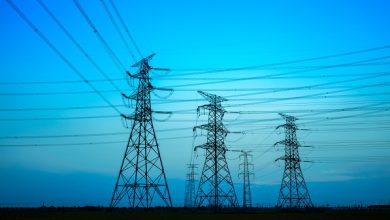3 New Toyota Fuel-Cell Technologies for Trucks – All You Need To Know

While the whole world is accelerating toward electric vehicles, Toyota stands by its decision to call hydrogen tech the future. Yes, the company has launched a whole lineup of EVs and it aims to replace all of its gas-powered vehicles with them. However, its main aim is to eventually perfect its hydrogen technology – combustion and fuel cells.
Now, we’ve obviously heard of Toyota testing out its combustion tech on a GR Corolla racer, the company actually has a lot of experience in fuel-cell tech. Its car, the Toyota Mirai is the first production car to have such a powertrain. It is now working on implementing this technology in a more commercial setting – so that more companies and small businesses can take advantage.
This is why we’re now getting reports of Toyota working on large semi-trucks in order to bring this new emissions-free tech to large-scale logistics companies. Even further, they are also trying to empower smaller-scale cargo transportation and technical workers with hydrogen tech. They’re doing this by utilizing their midsized pickup truck, the Toyota Hilux, for the job.
Commercial trucking
It is a fact that semi trucks are the backbone of the economies of most of the world’s nations. Take the USA for example; countless tons of goods are transported all over the country and this means that the carbon emissions released into the atmosphere are just as much. But since we cannot get rid of the semi-truck, it is imperative that we use greener technology.
In comes the partnership between Toyota and American truck giants Kenworth. They have recently successfully completed a project that let logistics and supply companies test out their new hydrogen fuel-cell semis. These trucks can do hundreds of miles after they’ve been filled up and their fuelling time is also just reduced to a couple of minutes.
Getting into details, each company did what they do best. It was Toyota who designed the powertrain while Kenworth designed the truck. The partnership means that we can have semi-trucks that are just as effective but they don’t pollute the environment. With this being initially implemented in LA, we can see quite a drop in atmospheric pollution in the city.
Toyota’s research endeavors deserve nothing but praise – but so do their spare parts. If you’re looking for a reliable supply of genuine Toyota parts, check out: https://sts-global.com/toyota-parts.
Hydrogen-powered Toyota Hilux
Toyota hasn’t forgotten about the smaller trucks that the average joe might use. All the news outlets are reporting that Toyota is working together with some other parties to develop a hydrogen-powered Hilux, their legendary midsize pickup truck. The company is doing this in the UK and is supported by the country’s government in its efforts.
The company has been working on this technology for about thirty years now. We can expect the fuel-cell-powered Hilux models to be completed by next year. The Toyota Hilux is the prime workhorse of the Toyota catalog in most of the world’s countries. If it becomes free from carbon emissions, it will lead to quite a positive impact.
As Toyota has already implemented this tech in their Mirai sedan, there’s a high chance that this will be a successful project. With this, we could see the fuel-cell technology make it to even more Toyota vehicles in Europe, and later the world.
Collab with the NREL
Now, while fuel-cell trucks are great, we also need to ensure that we have proper fuelling systems powered by hydrogen for commercial and residential purposes. So, Toyota is also simultaneously working on this, as they are working on a project with the NREL (National Renewable Energy Laboratory). This means that they’re supported by the US government.
The aim of this project is to use hydrogen power instead of non-renewable energy sources to produce electricity for a variety of purposes. They’re building these large cubical generators that will be connected to the equipment necessary for power transmission. These will provide a large amount of power by utilizing many fuel cell modules in a large and single setup.
This fuel cell power generation plant will generate up to 1MW of electricity. This will be available for usage in all sorts of different applications. Now, while the power is impressive, the real deal to be considered here is that all of it is going to be generated from a process that requires no fossil fuels whatsoever. So, we will have an electricity-generating process with zero emissions.













